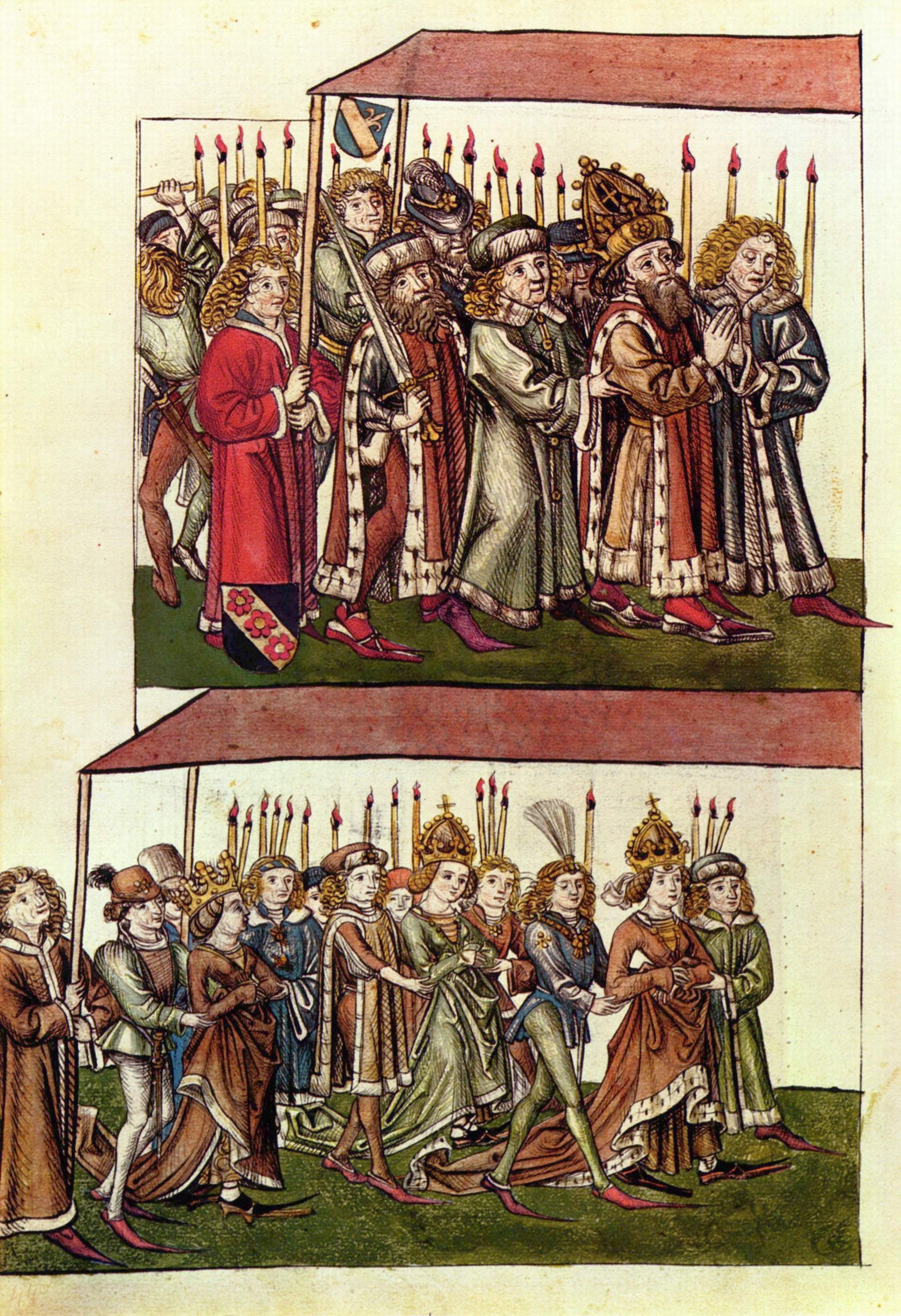
A 15th century depiction of the Council of Constance
Pope Alexander VI saw in the Spanish
petition for 'rights of conquest' an opportunity to preempt
conflicts with Portugal by delivering not one, but three, papal
bulls on the subject of discovered lands.
He rubber stamped Isabella's
petition, and sought to resolve the inevitable legal problems that
would arise if Columbus was successful (which he was). From
the pope's point of view the principle purpose behind exploration
was the expansion of ecclesiastical dominion over previously
unknown worlds. In the context of the time, nothing could be
more exciting than expanding Christ's flock of believers.
What needed to be settled, therefore, were the rights of Spain in
relation to the 'savages' living on the discovered lands, and also,
to draw a bright line between the rights of Spain and the rights of
Portugal.
In drawing that
line, Alexander echoed the centuries old theme of universal papal
guardianship first elaborated by Innocent IV. (For more, click here)
He endorsed Spain's conquest and subjugation of savages
inhabitants by granting the monarchs "full, free and integral power
and authority and jurisdiction over their new titled lands, with
the open path to carry out the papal mission of baptizing the
children of nature of the new world."
With the pope's
blessing Spanish settlements in the new world were run on the
encomienda system (the practice of enslaving native people for the
purpose of converting them to Christianity), and the infamous
requerimiento, the official declaration of conquest which gave
savages the choice of accepting Spain's jurisdiction over their
lands, or face slaughter at the hands of the conquistadores.
for more, click here
It was much the
same choice that had been given to Muslims during the crusades of
Innocent III and Innocent IV.
Related People
Related Events
Related Flashpoints